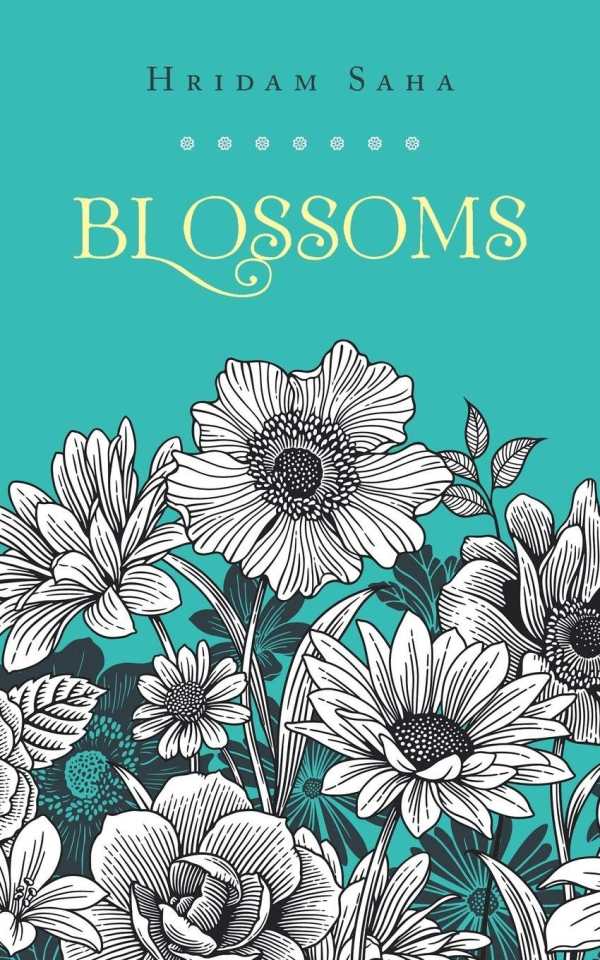Blossoms
Blossoms is a straightforward and youthful collection of poems.
Sixteen-year-old poet Hridam Saha’s Blossoms was written to delight young readers and collects both his earliest poems and his current ones. Direct and accessible, the poems are awestruck and tender.
The blossoms metaphor orders the book from early buds to more fully realized blossoms. This metaphor acts independently of the sections it represents, referring largely to the time elapsed rather than to progress in complexity and language.
Each poem is accompanied by drawings that have the look of pencil sketches or doodles in a notebook. Each also features an explanatory note regarding its inspiration or composition, giving the book a diary feel and often restating what is clear from the poems. “Boundless” speaks to an unnamed “you”:
when your soul plants a kiss
On dawn’s cheek,
And when nature herself dances and sings,
And you join her rhythm and beat.
The “you” is revealed to be a tree by the end note.
The first two sections, “The Undisguised” and “The Bridge,” feature Saha’s earliest poems, though not in chronological order. The poems are formatted to run down the center of the page, and many poems favor end rhymes that sound forced. Because the accented syllables are not consistent, the work is difficult to read aloud. Rhythms are inconsistent, as in the playful and praising poem “My Mother”:
My mother is great.
She gives me
Noodles on a plate.
In “My Shoebox,” which moves from buying shoes for a cruise to thoughts on the speaker’s cat, end rhymes result in strange lines:
I took out my shoebox
from the packet.
By mistake it fell
and hit my racket.
Of course it made a thud
As it did not fall on mud.
In the book’s “Bridge” section, the content becomes more mature as the speaker’s view of the world develops and changes. In “Cursed or Blessed,” the speaker shifts from saying “Really, am I cursed / To live on this earth / Where kindness is dispersed?” to “But then I realize / I’m blessed / To live on this earth, / To give the poor a life vest.” Such turns indicate a growing mindset, if some lines still feel forced or leave questions open about their meanings.
Often, the poems’ metaphors feel disconnected to the surrounding material—more the result of a determination to rhyme than they are inventive. Natural descriptions—of trees and the moon, meadows and rain––come without distinguishing details and are unsurprising. Though the settings are ostensibly India and Singapore, very few details of flora, fauna, or setting support that supposition.
Blossoms is a straightforward and youthful collection of poems.
Reviewed by
Camille-Yvette Welsch
Disclosure: This article is not an endorsement, but a review. The publisher of this book provided free copies of the book and paid a small fee to have their book reviewed by a professional reviewer. Foreword Reviews and Clarion Reviews make no guarantee that the publisher will receive a positive review. Foreword Magazine, Inc. is disclosing this in accordance with the Federal Trade Commission’s 16 CFR, Part 255.


